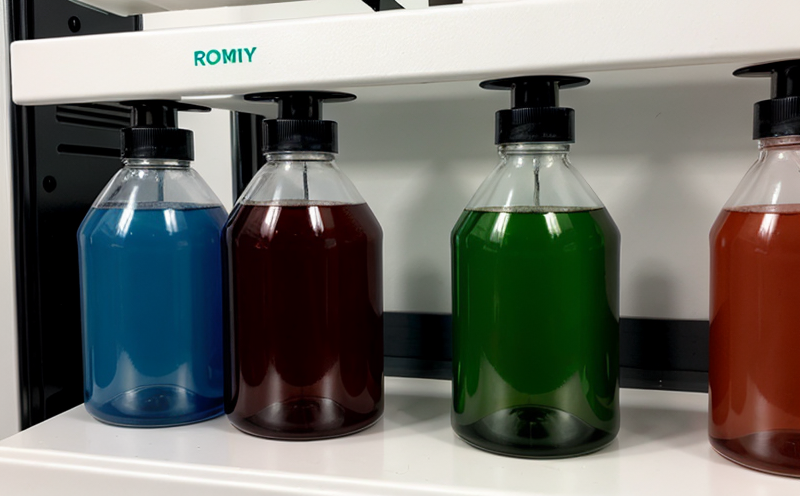EN ISO 1133 Melt Flow Index Polymer Reactivity Testing
The EN ISO 1133:2016 standard provides a comprehensive framework for melt flow index (MFI) testing, which is crucial in polymer characterization and quality control. This test measures the ease with which molten plastic material flows under a specified load and temperature condition. The MFI value indicates how easily or difficultly a polymer melts and flows during processing.
Reactivity testing within this framework involves assessing the reactivity of polymers, particularly in relation to their flow behavior under stress conditions. This is especially important for polymers used in high-stress environments such as automotive components, medical devices, and aerospace applications. The melt flow index test helps determine the suitability of a polymer for specific manufacturing processes.
The testing process involves precise specimen preparation and stringent adherence to ISO standards. Specimens are typically cut into small granules or pellets, which are then heated to predetermined temperatures under controlled conditions. The molten material is forced through a die with a specified diameter and length under a known load. The time taken for the material to flow out of the die is measured, and this value is used to calculate the MFI.
The importance of this testing lies in its ability to predict how polymers will behave during processing, particularly in extrusion or injection molding applications. A high MFI indicates a low viscosity polymer that flows easily at higher temperatures, while a lower MFI suggests a more viscous material that requires higher temperature and pressure for processing.
The test is not limited to just determining flow properties but also helps in evaluating the reactivity of polymers when exposed to different chemical environments. This is particularly useful in industries where polymers are subject to chemical reactions during production or use, such as coatings, adhesives, and sealants.
Understanding MFI through this testing method aids quality managers in ensuring product consistency and compliance with industry standards. It also allows R&D engineers to optimize polymer formulations for specific applications, enhancing performance while maintaining cost-effectiveness.
Customer Impact and Satisfaction
The implementation of EN ISO 1133 Melt Flow Index Polymer Reactivity Testing brings significant benefits to customers in various sectors. For quality managers, this testing ensures that products meet the required specifications and standards, thereby enhancing customer satisfaction.
Compliance officers can rely on this test to ensure their processes adhere to international standards, reducing the risk of non-compliance issues. This leads to a more robust supply chain and better product reputation in the market.
R&D engineers benefit from precise data that allows them to innovate and develop new materials with improved properties. This testing also supports procurement teams by providing reliable information on material performance and compatibility, which is crucial for sourcing high-quality raw materials.
Competitive Advantage and Market Impact
The ability to accurately measure melt flow index through polymer reactivity testing provides a competitive edge in the market. By ensuring product quality and compliance, companies can differentiate themselves from competitors who may not adhere strictly to industry standards.
This testing also facilitates the development of new products that meet emerging market demands. For instance, in the automotive sector, the use of high-performance polymers with optimal MFI values ensures durability and safety under varying environmental conditions.
Furthermore, by maintaining a consistent supply chain through rigorous testing, companies can ensure that all batches produced meet the same quality standards. This not only enhances customer trust but also supports long-term business relationships and brand loyalty.
Use Cases and Application Examples
| Industry Sector | Polymer Type | Main Use Case |
|---|---|---|
| Aerospace | Polyetherimide (PEI) | Manufacturing lightweight, high-strength components for aircraft structures. |
| Medical Devices | Polycarbonate (PC) | Bio-compatible materials used in surgical instruments and implantable devices. |
| Consumer Electronics | Polyphenylene Sulfide (PPS) | Manufacture of durable, heat-resistant components for electronic equipment. |
The application examples above demonstrate the versatility and importance of MFI testing across different sectors. By using this method, industries can ensure that their materials perform optimally under various conditions, leading to improved product performance and reliability.
| Test Parameters | Description |
|---|---|
| Temperature | The temperature at which the material is heated to simulate processing conditions. |
| Load | The weight applied to force the molten polymer through the die. |
| Die Size | The dimensions of the die through which the polymer flows. |
These parameters are crucial in determining the MFI value and thus the reactivity of the polymer. The correct selection and application of these parameters ensure accurate and reliable test results, providing valuable insights into material behavior.





